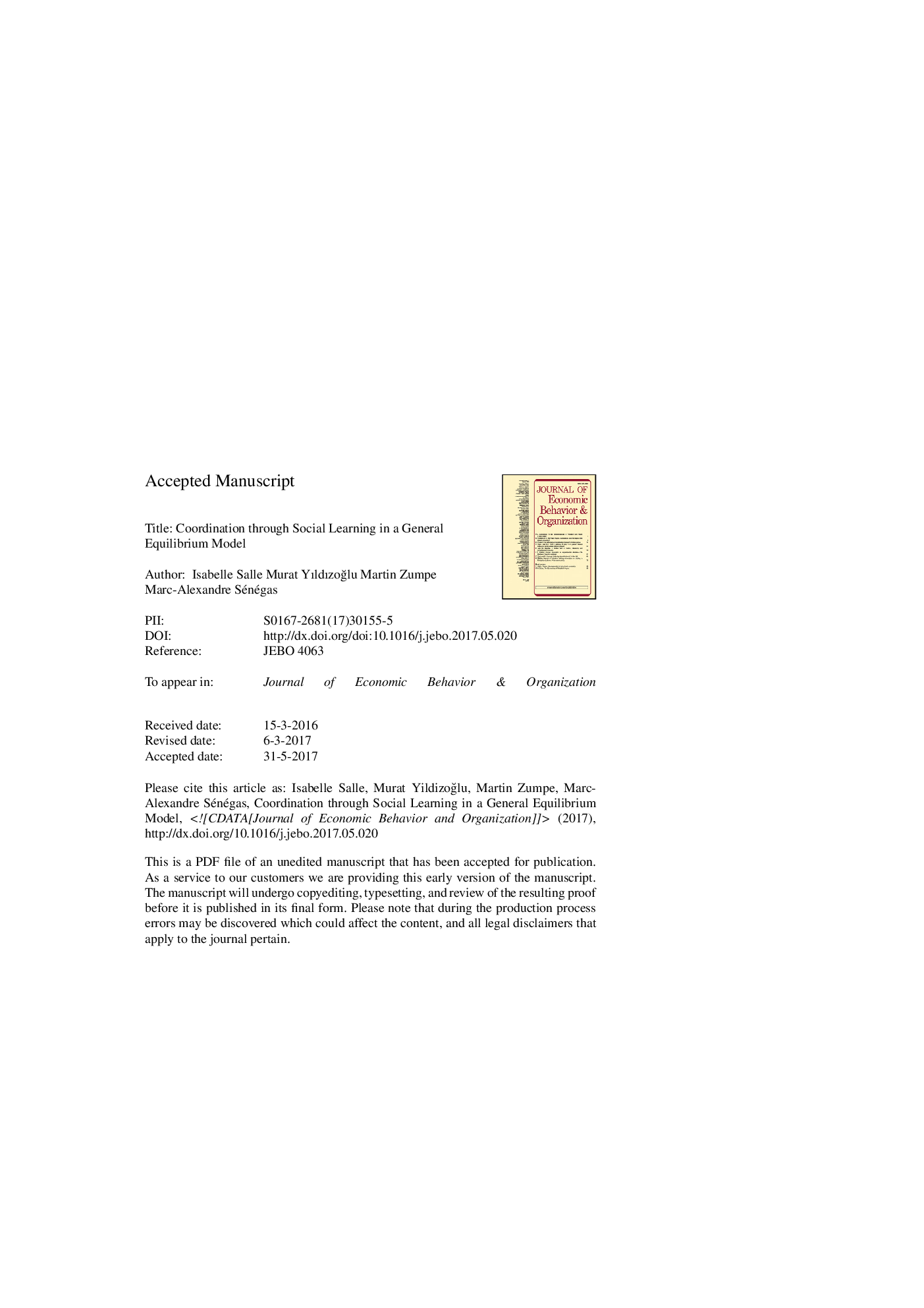| Article ID | Journal | Published Year | Pages | File Type |
|---|---|---|---|---|
| 5034391 | Journal of Economic Behavior & Organization | 2017 | 41 Pages |
Abstract
This paper analyses coordination through social learning in a general equilibrium model. We use a fully decentralized economy, in which households and firms exchange labour and consumption goods in the corresponding markets with potential rationing. Their strategies are updated through an evolutionary learning process based on imitation and random experimenting. This learning process induces substantial coordination failures, especially between firms, which lead almost systematically to below equilibrium output levels and social welfare losses. The main underlying mechanism is a self-reinforcing uneven distribution of households' income, which results in a lack of aggregate demand.
Related Topics
Social Sciences and Humanities
Economics, Econometrics and Finance
Economics and Econometrics
Authors
Isabelle Salle, Murat Yildizoglu, Martin Zumpe, Marc-Alexandre Sénégas,
